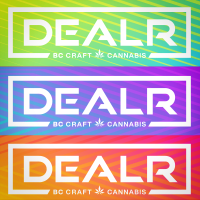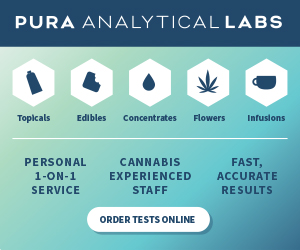
New Brunswick cannabis producer Organigram has filed for a judicial review of Health Canada’s recent decision to require an end to sales of “edible extracts” that exceed the federal 10mg THC packaging limit.
The filing, posted March 31, 2023 as Organigram Inc. v. Minister of Health et al., falls under Section 18.1 Application for Judicial Review. Judicial review is a process by which the courts can ensure that the decisions of administrative bodies like Health Canada are fair, reasonable, and lawful.
Organigram is seeking a judicial review following Health Canada’s move to end the production and sale of so-called “edible extracts” earlier this year. The company is one of a handful that were producing products in this category that were packaged exceeding the federal limit of 10mg THC per package for edibles. These were generally in the form of lozenges and gummies.
Note: A representative for Organigram insists that Organigram does not compete in the so-called “edible extracts” category and only produce “ingestible extracts”.
The company hopes to see Health Canada’s order quashed or set aside, instead requiring Health Canada to make a determination that its Jolts lozenges are a cannabis extract and do not constitute edible cannabis under the Regulations.
Organigram and others who have made these products contend they are compliant products.
In early January 2023, Health Canada sent a notice to producers highlighting their concerns with these products. Companies were eventually told they had until May 31, 2023, to cease sales and distribution.
Organigram, which has been selling their Edison Jolts products as cannabis-infused lozenges sold in packaging exceeding 10mg THC, said in March that it has paused production. It maintained that the products were compliant with federal regulations.
“The company remains of the view that the patent-pending products are properly classified as cannabis extracts and compliant with the cannabis regulations, and is assessing its options with its legal advisors. At present, the company has paused production of the products in the current packaging format, pending resolution of the matter.”
Each Lozenge contains 10 milligrams of THC, for a total of 100 mg THC per container of Jolts. The Jolts are available in three flavours – mint, electric lemon, and arctic cherry.
Organigram’s argument to the court contends that the Jolts Lozenges do not contain any sugars, sweetening agents, or sweeteners, although they do utilize an ingredient called Oligofructose, a “non-digestible dietary fibre” Organigram maintains is only used as a carrier and bulking agent.
The filing also notes that the products were first submitted through Health Canada’s Notice of New Cannabis Product (NNCRP) process for each flavour of Jolts at different times in 2021, and that they had submitted their first NNCP for cannabis extract lozenge products as early as August 21, 2020.
Health Canada issued a public warning about these products on March 3.
“Some edible cannabis products were found to contain more than the allowable limit of 10mg of THC per package,” notes the press release. “These non-compliant products in product formats similar to gummies and other confectionery products, such as hard candy, have been incorrectly marketed and sold as cannabis extracts.”
The federal health authority also issued a new online document providing clarity on the issue of the classification of edible cannabis. The document, in part, notes that a cannabis edible is defined as any article manufactured, sold, or represented for use as food or drink for human beings, chewing gum, or any ingredient that may be mixed with food for any purpose.
“Licence holders should verify if their cannabis products are classified correctly. Licence holders are encouraged to review the definitions of, and requirements for, cannabis and cannabis products in the Guide on composition requirements for cannabis products and Packaging and labelling guide for cannabis products.”
In an email to StratCann on Monday, March 6, a representative for the federal health authority confirmed they are sending out notices to companies making these “non-compliant” products.
“Federal licence holders that have non-compliant edible cannabis products have or will receive a Non-Compliance Determination Letter. This letter indicates the actions and the associated timelines that licence holders are expected to take to come back to compliance. Provincial and territorial distributors have been and will continue to be made aware in order to adjust their operations accordingly.”
Health Canada initially issued warnings to some producers or manufacturers of so-called “edible extracts” in January, warning them they were not compliant with federal regulations. One producer, Vortex Cannabis, confirmed they received an order from Health Canada to stop sales of their Full Spectrum THC Jelly Cubes due to these being inaccurately classified as extracts rather than edibles.
The Vortex Jelly Cubes came in 10mg THC squares, sold with multiple units per pack.
Several other companies make similar products, including Indiva, Organigram, Loosh Brands, and Aurora Cannabis.
One national private-sector advocate for compliance and quality in the Canadian Cannabis sector, the C-45 Quality Association, says they are drafting a letter to Health Canada discussing their concerns with this recent decision.












